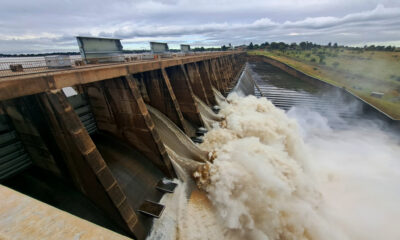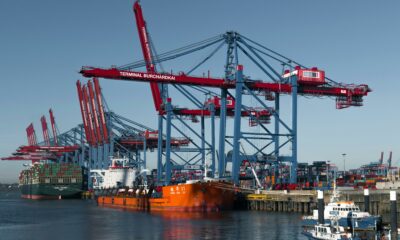News
Emfuleni’s Water Crisis Hits Boiling Point as Government Unveils New SPV Reform Plan

A turning point for a community that has waited too long
On the Vaal’s southern edge, the people of Emfuleni have lived with dry taps, leaking sewage, polluted rivers, and broken infrastructure for years. Anyone who has travelled through the area knows the symptoms of a system that has slowly collapsed. On Friday, the government unveiled a Special Purpose Vehicle that it says is meant to reset the future of water delivery in the municipality.
Deputy Minister David Mahlobo made the message clear at the launch of the agreement between Rand Water Services and Emfuleni Local Municipality. He said this moment should not be mistaken for a quick financial rescue. It is meant to be a structural shift that changes how water is managed, paid for, and protected.
He told residents that the SPV is not a bailout. He described it as a long-term solution designed to stabilise the system and rebuild dignity in a community that has endured far more hardship than it should have.
What years of failure look like on the ground
For many locals, the crisis is not a headline. It is the daily reality of carrying water in buckets, living with broken pipes, and watching wastewater spill into the Vaal River system. According to the government, non-revenue water in Emfuleni has climbed to around seventy-five percent. In simple terms, this means most water pumped into the system is lost before reaching homes or billed customers.
Infrastructure has collapsed, billing systems have fallen apart, and municipal debt has grown to a point where services could not keep up. Residents have waited through all of this with a mixture of frustration and resilience. Many welcomed the announcement because it signals that their situation is finally being taken seriously.
Why Emfuleni is part of a bigger national concern
Mahlobo reminded the country that South Africa is one of the most water-scarce nations in the world. The pressures of climate change, rapid population growth, and ageing infrastructure have already shown how vulnerable the system is. Localised deficits have affected places like Nelson Mandela Bay and Cape Town in recent years, and Gauteng is currently feeling a similar strain.
The national data is worrying. More than seventy percent of Water Services Authorities assessed are scoring in poor or critical categories. Drinking water quality has slipped, and failures at wastewater plants continue to contaminate rivers and wetlands that feed entire communities.
A new model for a failing system
The deputy minister said that the traditional way municipal water services are structured no longer works. Section sixty-three interventions have struggled because legislation did not allow clear accountability or effective tools to correct problems. The result has been a slow decline and worsening service delivery.
The new SPV aims to change that through a fully ring-fenced and professional water services provider that has clear responsibility. It will focus on revenue collection and reinvestment, technical management, and transparent operations. This model supports the Water Services Amendment Bill and Operation Vulindlela Phase Two, which call for a separation between Water Services Authorities and Water Services Providers.
The government confirmed that the initiative has the backing of the National Treasury, the Department of Water and Sanitation, and local leaders.
The community must be part of the solution
Mahlobo told residents that the SPV may build the structure, but the people of Emfuleni must help keep it standing. He urged households to protect infrastructure, report illegal connections, and use water responsibly.
Labour groups, industries, NGOs, and faith communities were asked to support the effort. Water security, he said, is not only a technical responsibility. It is also a social and ethical one.
He directed a message to the youth, calling on them to pursue careers in engineering, environmental science, and public administration so that Emfuleni’s next generation becomes the custodians who ensure such a crisis never happens again.
A beginning rather than a fix
The road ahead will not be smooth. Short-term disruptions and difficult adjustments are inevitable. But the deputy minister stressed that the SPV marks the start of a new era in how the state approaches failing water systems.
He said this agreement should become a symbol of accountability and partnership. For Emfuleni, it represents the first step toward turning water from a daily struggle into something every household can rely on.
Follow Joburg ETC on Facebook, Twitter, TikT
For more News in Johannesburg, visit joburgetc.com
Source: The Citizen
Featured Image: Infrastructure news



























